News
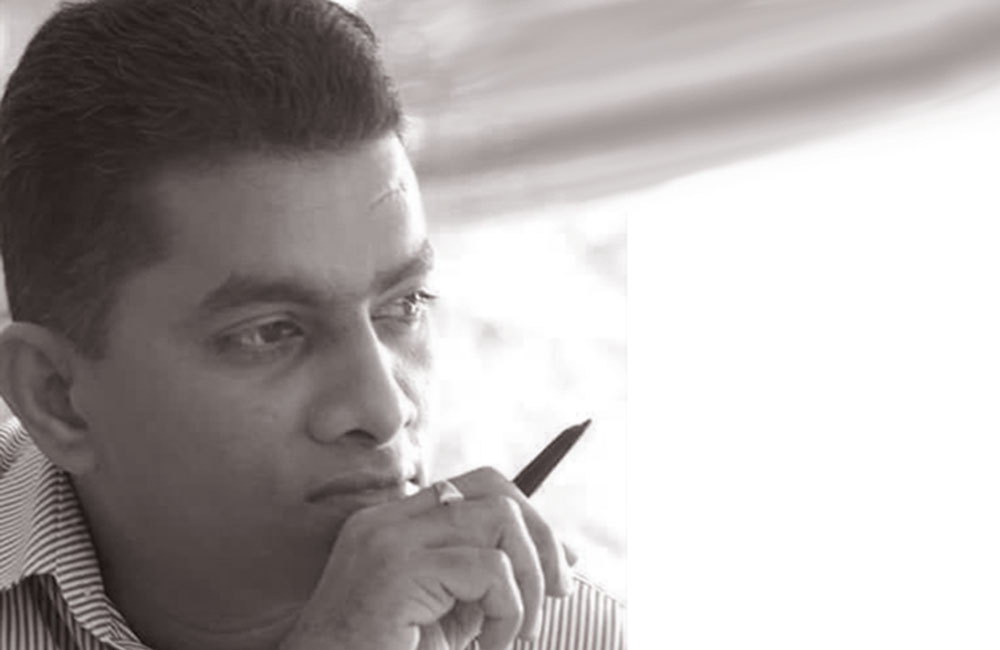
Award-winning writer & director Gaya Ramya Alwis passes away
Award-winning writer and teledrama director Gaya Ramya Alwis has died, aged 52.
Alwis, who worked as a senior producer at Sri Lanka Rupavahini Corporation, had been admitted to Ragama Hospital due to illness, where he breathed his last.
He was the youngest son of renowned songwriter Dalton Alwis.
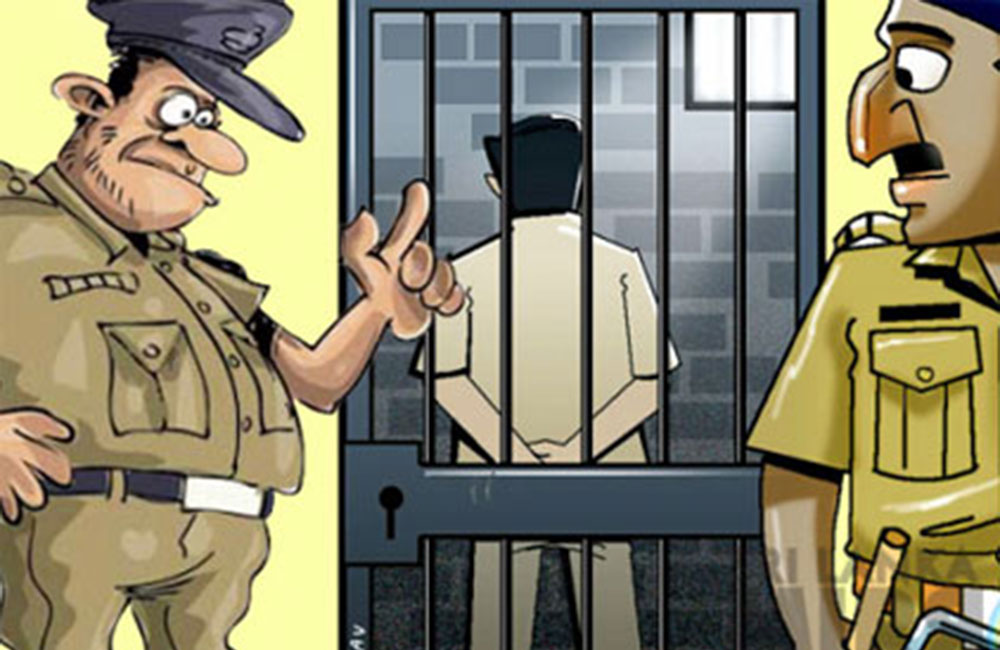
Welikada inmate disguised as prison official arrested
An inmate at the Welikada Prison was arrested when attempting to flee the premises in an attire similar to a prison guard's uniform.
The Department of Prisons said a death row inmate at the Welikada Prison escaped when he was taken out of the cell for a religious program on Sunday (25).
Prison officers had later arrested him while he was boarding a train at the Maradana Railway Station and brought him back to the Welikada Prison.
The inmate was convicted of murder and sentenced to death by the Gampaha High Court in 2015.
He is a 42-year-old resident of Pannala.
The Prisons Department said an investigation will be conducted under the Prison Superintendent of the Colombo Remand Prison.
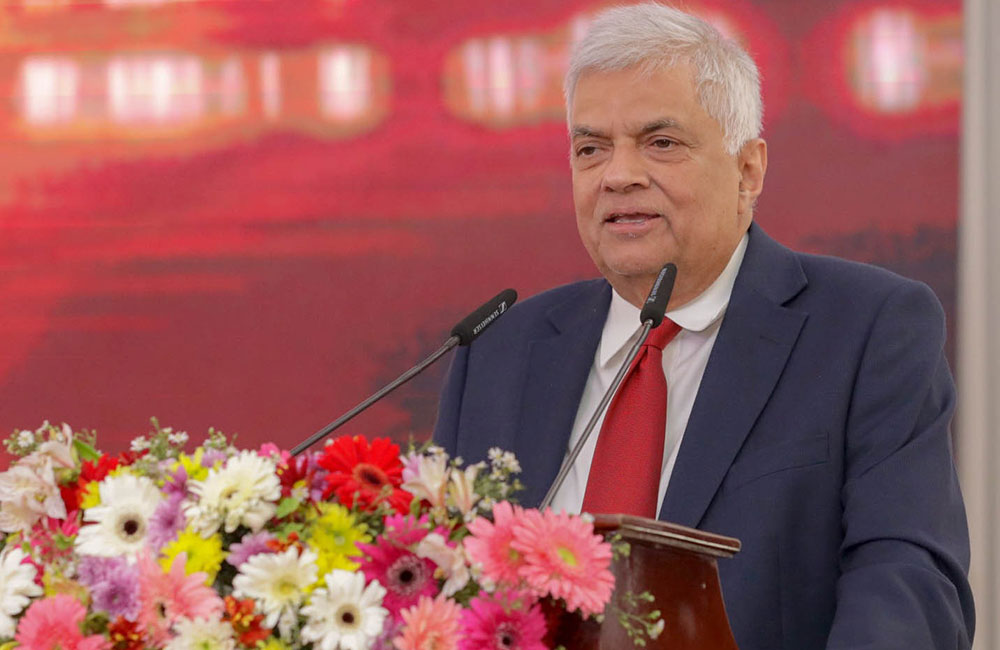
Domestic debt restructuring will not affect banking system - President
President Ranil Wickremesinghe assured that the restructuring of domestic debt will have no impact on the membership balance of any public funds, including the Employees’ Provident Fund (EPF).
He emphasized that the rate of return for superannuation funds will not be affected in any way.
Furthermore, the President stated that the restructuring of domestic debt will not pose any threat to the stability of the country’s banking system, whether it be public or private banks.
He specifically mentioned that the deposits of more than 50 million bank depositors will remain unaffected, and there will be no changes to the current interest rates paid on bank deposits.
President Ranil Wickremesinghe also announced that proposals for restructuring both foreign and domestic debt will be presented to the Cabinet tomorrow (28).
The President made these statements while inaugurating the Gampaha District Secretariat Administrative Complex, ‘Laksiyane Mandiraya,’ which has been constructed with the aim of providing efficient and regular government services to the people of the Gampaha district.
The complex, with an expenditure of nearly Rs. 4 billion, stands at seven stories tall.
It was highlighted that Sri Lanka’s total public debt, comprising both domestic and foreign debt, amounted to $83,700 million by the end of 2022, representing 128.3% of the Gross Domestic Product (GDP).
Of this amount, the foreign debt totalled $41,500 million, accounting for 63.6% of the GDP. The President also noted that the domestic debt at that time stood at $42,100 million, which constituted 64.6% of the GDP.
The President highlighted the urgency of restructuring the country’s debt, stating that without such measures, the public debt would exceed 100% of the GDP by 2035.
He emphasized that foreign creditors have already expressed their agreement to participate in the debt restructuring process.
To ensure debt sustainability in Sri Lanka, the President emphasized the need for restructuring both external and domestic debt.
Acknowledging the significant burden carried by foreign creditors, he mentioned that the country is set to receive 17 billion US dollars from them in the next five years.
The President emphasized the importance of local creditors also contributing to this effort.
The proposed debt restructuring plan has been designed with the primary objective of safeguarding the public’s bank deposits.
The President underlined the responsibility of protecting the depositors of all banks regulated by the Central Bank. He assured that the proposed domestic debt restructuring method poses no harm to bank depositors and will not lead to a collapse of the banking system. On the contrary, it will pave the way for a restructuring process that can rebuild the economy.
The President further stated that the country’s economic recovery, reduction in interest rates, the government’s ability to provide subsidies easily, and the reduction of both domestic and foreign debt burden in the next decade will yield positive results benefiting the people of the country.
During his official visit to France, the President engaged in discussions with Commonwealth Secretary General Patricia Scotland, International Monetary Fund Managing Director Kristalina Georgieva, Netherlands Deputy Prime Minister and Finance Minister Sigrid Kaag, American Treasury Secretary Janet Yellen, and Japanese Foreign Minister Yoshimasa Hayashi regarding foreign debt restructuring. The President highlighted the progress being made in Sri Lanka’s financial sector during these discussions. He expressed satisfaction that they were all eager to assist in reversing the crisis in Sri Lanka and affirmed their commitment to contribute significantly to the country’s economic recovery.
The President also said that during a recent telephone conversation with the Indian Finance Minister, Mrs. Nirmala Sitharaman, she had expressed her country’s intention to positively contribute to Sri Lanka’s debt restructuring and economic stability. The President said that he would hold detailed discussions on the matter during his upcoming visit to India.
The President also mentioned that Foreign Minister Ali Sabri, who is currently on an official visit to China, has agreed to enhance bilateral relations and strengthen economic ties between the two countries. Minister Sabri held fruitful discussions with China’s Foreign Minister, Mr. Qin Gang, sharing their views on deepening cooperation.
President Ranil Wickremesinghe further revealed that, during a meeting with the Chinese Finance Minister, Liu Kun, in Beijing, he was briefed on the economic stabilization and progress plan of the country. Minister Ali Sabri expressed gratitude for China’s special contribution during the previous crisis.
During the visit, the President held discussions with the Chairman of the Chinese Exim Bank, Wu Fulin, and other Chinese officials appointed for the purpose of restructuring Sri Lanka’s foreign debt. They assured their commitment to contribute to the debt restructuring process in the best possible manner.
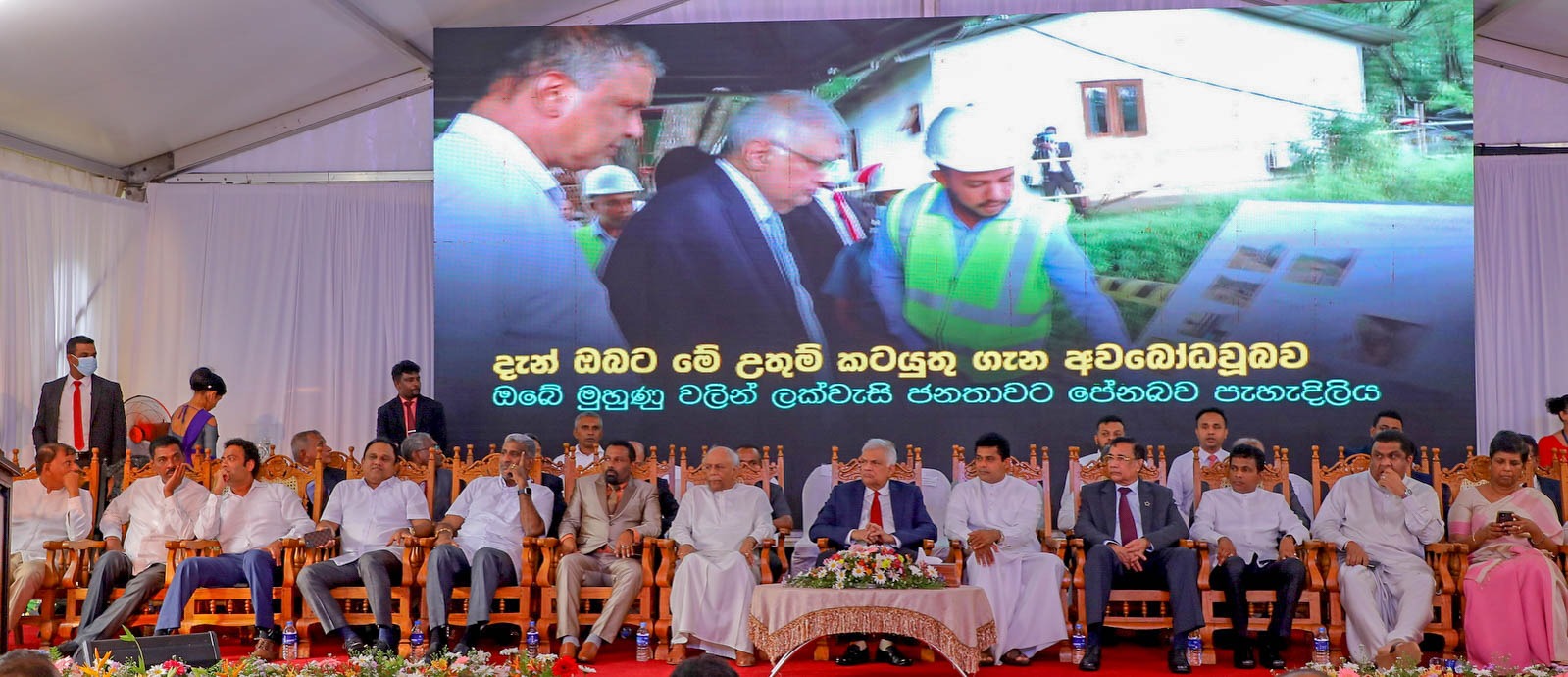
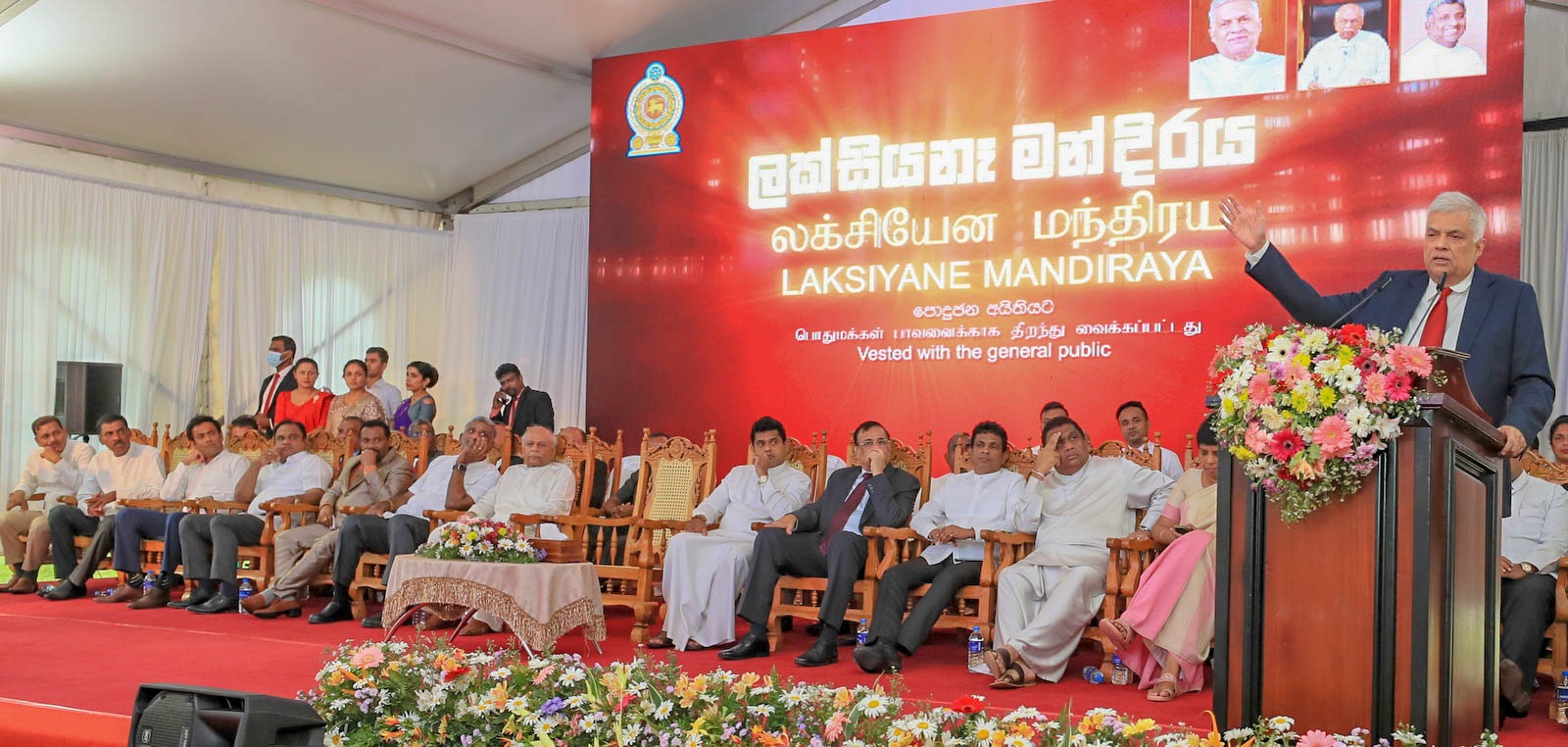
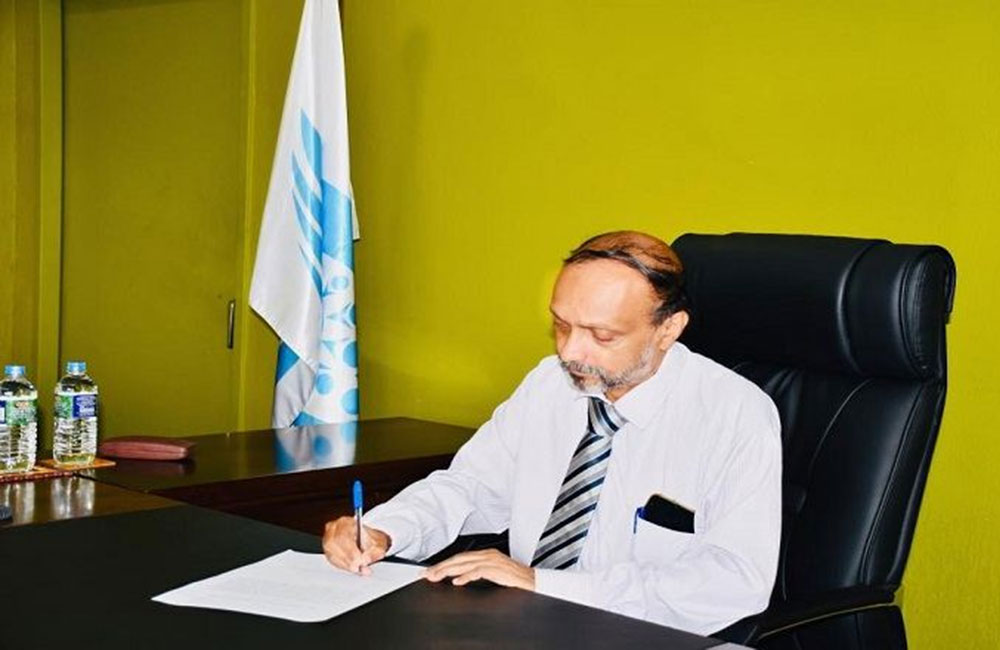
Professor Manjula Fernando to be appointed as new PUCSL Chairman
The Constitutional Council has granted approval to appoint Professor Manjula Fernando to the post of Chairman of the Public Utilities Commission of Sri Lanka.
The new appointment came after the resolution to remove Janaka Ratnayake from the post of Chairman and Member of the Public Utilities Commission was passed in Parliament on the 24th of May.

CEB to launch e-billing system from July
The Ceylon Electricity Board (CEB) has announced the launch of the next phase of its e-billing system, which will come into effect from July 01, 2023.
In a press release, the CEB said the customers residing in Dehiwala, Kelaniya and Sri Jayewardenepura areas would ‘exclusively’ receive their electricity bills in a digital format, either through SMS or e-mail.
With the introduction of the e-billing system, the conventional practice of issuing printed paper bills will be discontinued.
The CEB is encouraging its customers to promptly register for the e-billing system, as the issuance of printed paper bills will gradually be suspended in the coming month.
Seeking the attention and cooperation of the public to ensure the successful implementation of the e-billing system, the CEB said this initiative is expected to save approximately 100 million sheets of paper annually.
“In light of this significant environmental impact, we invite all our customers to join us in embracing this digital transformation and take advantage of the CEB’s digital services ahead of the mandatory rollout.”
Registration via SMS: Type REGfollowed by A/C Number and send it to 1987.
Online registration: Visit http://ebill.ceb.lk and follow the instructions
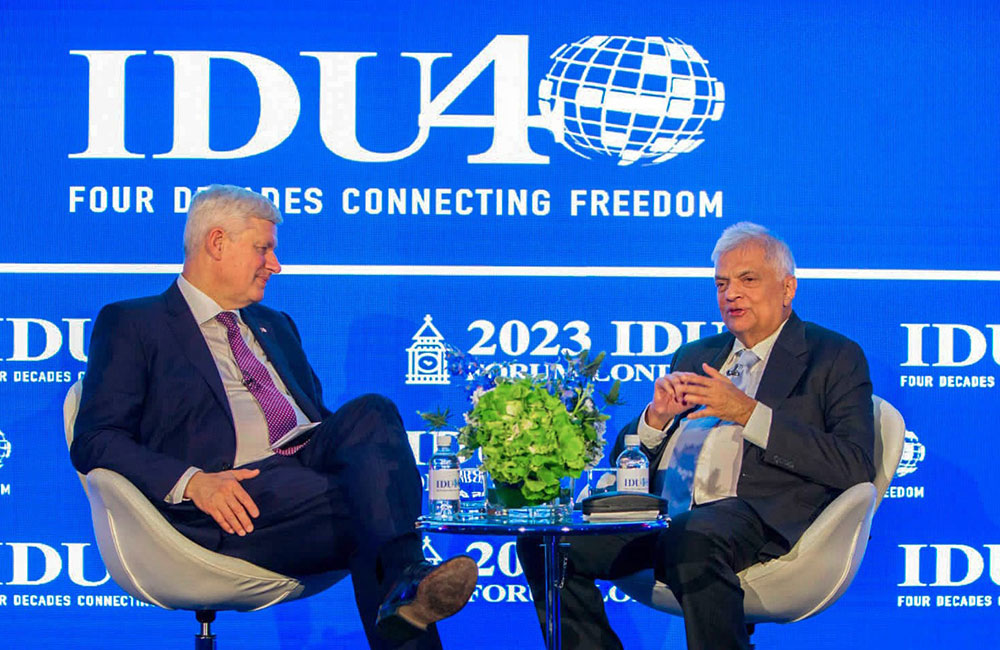
President confident of achieving substantial headway by 2024, outlines plans to finalize debt restructuring
In a determined push to address Sri Lanka’s debt crisis and foster reconciliation, President Ranil Wickremesinghe outlined his plans to finalize the debt restructuring process by September.
Participating in the 40th anniversary event of the International Democrat Union (IDU) in London, Wickremesinghe expressed his aims to develop a comprehensive strategy for resolving the nation’s financial burdens in close collaboration with the Parliament.
The event took place on 19 and 20 June, with Wickremesinghe being joined by former Canadian Prime Minister (Conservative Party) Chairman of the IDU, Stephen Harper.
While debt restructuring remains a key priority, President Wickremesinghe noted that his primary focus lies in completing vital structural reforms, aiming to accelerate economic liberalization and attract increased investments, which are intended to bolster Sri Lanka’s financial prospects and drive a more favourable balance of trade in the long term.
Amidst questions regarding the duration of the process, Wickremesinghe expressed confidence that substantial headway will be achieved by 2024.
Furthermore, he said that efforts have been made to address land-related concerns in the North and East regions, with progress being made on settling these disputes. The Missing Persons Office has taken steps towards utilization and has yielded potential solutions, which have been shared with Tamil parties.
Following are excerpts from the interview:
President Ranil Wickremesinghe;
If I look back to May-June last year, Sri Lanka was on the verge of chaos. No one seemed willing to take charge or show leadership. I found myself in a peculiar position. In the 2019 Presidential Election, our party wanted to adopt a populist approach, so they chose our deputy leader as their candidate. Unfortunately, as I had anticipated, he suffered a significant defeat.
Then the COVID pandemic struck, and in August 2020, we went ahead with the election. Personally, I believed that we should stick with the IMF program. This program, which we had initiated in 2016, required Sri Lanka to commit to a primary surplus and reduce subsidies. We diligently worked towards these goals, and by 2018, we managed to achieve a primary surplus of USD 300 million. While it was a modest amount, it gave us a starting point to build upon.
However, the new government that came into power subsequently decided to cancel the IMF agreement. It was at that point that I advocated for revisiting the IMF and requesting them to reinstate the agreement. Furthermore, I suggested that we explore other options to raise USD 5 million.
During my tenure as Prime Minister, I had engaged in negotiations with the Japanese, Indians, and other parties for projects worth approximately USD 4 billion. Unfortunately, all those projects were ultimately cancelled. Despite this setback, some members of my own party believed that our approach was too narrow and opted for a populist stance, eventually breaking away from the party. As a result, for the first time in history, my party was left with just one member in parliament, which happened to be me. Meanwhile, the breakaway faction had gathered 50 members.
On May 9 of the previous year, riots erupted, leading to the burning of the residences of 65 government members of parliament. Consequently, the Prime Minister at the time, Mr. Mahinda Rajapaksa, was compelled to resign. That night, I engaged in discussions with a government member to explore how I could be of assistance. The following day, the President reached out to the leader of the opposition and the leader of the breakaway faction, asking them to assume the position of Prime Minister. However, the leader of the breakaway faction declined the offer.
During this period, I had been advising the President to seek assistance from the IMF and the World Bank. Subsequently, the government insisted that I should become Prime Minister and nominated me for the position with their support. I expressed my concern about being the only member of the party and questioned the feasibility of having a Prime Minister under such circumstances. However, they reassured me that they would support me and initiated negotiations with the IMF.
In the previous year, our debt services amounted to approximately $8 billion. By April 2022, our financial situation had deteriorated to the point where we had to declare ourselves bankrupt. However, as we began to recover and the government started functioning, a wave of protests emerged. On July 9, a group of organizers managed to gather a significant number of people in Colombo, something unprecedented in scale.
Shockingly, these protesters went on to invade the official residence of the President. Faced with this unexpected threat, the President had to flee to the harbour and board a ship belonging to the
Sri Lankan Navy. Later that afternoon, party leaders convened a meeting, during which they demanded the President’s resignation and proposed that I assume the role of acting President. However, the opposition insisted that I should also resign. I stood firm and reminded them that according to the constitution, a person with a majority vote in parliament must be found before I could resign. Meanwhile, urged by some media outlets, the protesters targeted my house and set it on fire, assuming I would be compelled to leave. However, I remained steadfast and refused to back down.
The following day, I was asked to resign, while some others advocated for the Speaker to take over. However, both propositions were rejected. I maintained my position and refused to resign. On Monday, with the cabinet assembled, we held a televised meeting, while the President had already left the country for the Maldives. Meanwhile, the protesters resolved to seize the Prime Minister’s office and take control of Parliament.
Two days later, a fierce battle ensued outside the Prime Minister’s office, lasting approximately six to five hours. Despite the escalating situation, I refrained from ordering the use of firearms. Eventually, the protesters managed to break into the Prime Minister’s office, with the military accompanying them. In the afternoon, they began marching towards Parliament. Recognizing the gravity of the situation, I instructed the Chief of Defence to issue a statement, emphasizing that the protesters must not take over Parliament. The opposition leader supported this stance.
I then directed the army commander, reminding him of his responsibility to protect the parliamentary building. I stressed that we could deploy the best battalion in Sri Lanka, even without arms, to confront the protesters. Remarkably, the unarmed battalion successfully managed to quell the protests, but unfortunately, 24 soldiers were injured in the process.
At that moment, I realized that it was time for me to step in and assume control. The President had already submitted his resignation, yet nobody was willing to allow me to be sworn in as the acting president within any official buildings. I made a conscious decision not to utilize Parliament or the Chief Justice’s residence, nor any of the other buildings occupied by ministers.
Instead, I had to resort to a family temple near my house. Early in the morning, I went to the temple, accompanied by the Chief Justice, where I took my oath of office. In order to maintain secrecy, the priest requested that the location of the temple not be disclosed. There was a photograph capturing the moment I was being sworn in, but the temple’s whereabouts remained unknown.
Soon after, we had to proceed with the presidential election. In the meantime, I took necessary steps to restore law and order. I firmly stated that these were not mere protests, but actions intended to overthrow the government and disrupt the Sri Lankan parliament. I had a responsibility to put an end to it.
Although a number of protesters were initially arrested, they were later released, which only served to embolden them further. Even the presidents of the Bar Association stood in solidarity with them. Recognizing the gravity of the situation, I consulted with the Attorney General and realized that the protesters were attempting to attack Parliament. As a result, I issued detention orders and apprehended two or three individuals. It was the only viable approach to address the escalating crisis. Eventually, the Prime Minister’s office was cleared as the army intervened, followed by the clearance of the President’s office and residence.
When it came time for the election, the circumstances were quite peculiar. On one side, there was the government party led by the Rajapaksa clan, whom we were opposed to, and on the other side, there was the opposition. Surprisingly, I discovered that I had support from both the government party and the opposition, and they urged me to contest the election. Responding to their call, I entered the race and emerged victorious, winning by a margin of 135 votes. Once I assumed the presidency of Sri Lanka, I promptly issued an order prohibiting any form of demonstrations in the country for one week, aiming to restore peace and stability.
As a result of these efforts, we successfully managed to restore order. We reached out to the large number of individuals who were attempting to disrupt peace and sent them a message, urging them to support the government in its endeavour to re-establish law and order. The silent majority, including businesses and individuals in the villages, stood behind this cause, even if they may not have specifically supported me personally. Their support was for the restoration of law and orders itself.
Having achieved stability, I proceeded to take additional measures to address the prevailing economic crisis. One of our key decisions was to initiate negotiations with the International Monetary Fund (IMF).
I plan to finalize the debt restructuring after September. As I move forward, I will be working on Sri Lanka’s debt restructuring strategy with the parliament. However, my main focus is on completing the necessary structural reforms. I aim to promptly liberalize the economy and attract more investments to Sri Lanka. In the long run, it is crucial to have investments that will improve the balance of trade in our favour. So, why should this process take so much time? Nonetheless, I am confident that by 2024, we will have much greater control over the situation.
Mr Stephan Harper
And ultimately, what you’re conveying is, I believe, a message that applies to all of us. While the economic problems may vary in severity across our countries, challenges still exist. The only viable solution in the long run is a program driven by the private sector.
President Wickremesinghe
A market-oriented, credit-integrated growth strategy is the only available option. I genuinely believe there is no other solution, and this has been the case for thousands of years.
Mr Stephen Harper
Well, Winston Churchill famously remarked that all forms of government are dreadful, except for democracy. We observe that societies often experiment with socialism, protectionism, corporatism and populism until they ultimately realize that conservatism is the only path to economic growth. However, let’s shift gears because a significant portion of our discussion revolves around global affairs and foreign policy. While we represent a diverse group here, it is evident that we predominantly represent the Global North, whereas you hail from the Global South. Considering your geographical position, where do you envision Sri Lanka’s future foreign focus? Which countries serve as its strategic allies, and what risks do you anticipate in the upcoming phase?
President Wickremesinghe
Sri Lanka’s primary strategic allies in Asia are the Southern Asian region. Additionally, we maintain relationships with the Middle East, India, Japan, China, and Australia. Looking westward, we engage with Europe, the United Kingdom, Commonwealth countries, and South Africa.
Mr Stephen Harper
In a world where trade pressures, the on-going COVID pandemic, and especially the conflict in Ukraine, have contributed to a growing polarization or tension between the United States and its allies on one side, and China and its allies on the other, how does a country in your position, in terms of economic growth, position itself? Where do you see Sri Lanka fitting into this scenario, and how do you navigate the complexities that arise from such dynamics?
President Wickremesinghe
Essentially, our stance aligns with the Global South, and we emphasize sharing that perspective. Both the United States and China are crucial partners for us. Their involvements in the Pacific region and the Belt and Road Initiative, along with the ASEAN outlook on the Indo-Pacific, are all compatible.
The rise of China has contributed to the rise of Asia, so it is vital for us to ensure China’s continued economic development. However, that alone is insufficient for our region. We also need ASEAN, India, and the Middle East to witness growth over the next 20 to 25 years. While we have managed to strike a balance by leveraging relationships with various countries, we also value our association with the United States. Sri Lanka’s foreign policy has consistently aimed to prevent the militarization of the Indian region, yet we have supported the United States from the very beginning.
Currently, we are urging everyone to collaborate with us in Sri Lanka to assume the chairmanship of IORA (Indian Ocean Rim Association) to safeguard freedom of navigation in the Indian Ocean. Simultaneously, we advocate for freedom of navigation in the Pacific. The three main issues need to be addressed collectively rather than one dominating over the other. China must engage in constructive dialogue with African countries to resolve these matters and reduce tensions.
Mr Stephen Harper
I’d like to delve deeper into the China question. It is often emphasized that the United States is essential for our security while China’s support is critical for our economy. We have to navigate both relationships, and undoubtedly, Chinese investments and business have played a significant role in Sri Lanka. However, I’ve noticed substantial issues regarding the debt obligations left by China. Could you provide some insight into this matter?
President Wickremesinghe
China holds the position of being both the largest bilateral creditor and the largest debtor as a private investor. Initially, China was unsure about how to approach the debt restructuring. They took time, while the United States offered assistance, followed by Japan and India with a combined amount of 3.5 billion. We utilized approximately 2.5 billion, and the United States also provided support. This marked the beginning of our progress. We engaged with the Paris Club, excluding India and China initially, but later India joined. Meanwhile, we were engaged in discussions with China, which were complicated due to their party conference in November.
Eventually, they decided to stand by us. Then, in Sri Lanka, we proposed the Common Platform and suggested India join the platform while China attended as an observer. They expressed their willingness to engage in bilateral discussions with us, but their primary focus seems to be on bilateral discussions with the International Monetary Fund (IMF). The IMF ensures all parties are informed and involved. Currently, we are working on the platform for creditors and engaging with China, but I cannot predict how this will work out with other debtor nations.
Mr Stephen Harper
I have two more questions, but we are running a bit behind schedule. However, I must ask you about an important point of discussion here, considering your unique perspective from the Global South. Your country has significant trade relations with both Ukraine and Russia. Could you elaborate on how you envision the desired outcome in this context?
President Wickremesinghe
When it comes to the majority of the Global South, we have chosen to stay out of this conflict. Some countries within ASEAN have taken positions, with some working actively, while others remain neutral.
A few have voted in favour of the revolution. From the beginning, it has been our belief that this issue could have been resolved through peaceful means. Our primary goal is to prevent the conflict from escalating and to ensure a peaceful settlement. As someone mentioned before, history has shown that major wars often originate in Europe.
Our commitment lies in supporting a peaceful resolution in Ukraine. The question remains about how we can achieve this and bring Russia to the negotiating table. President Ramaphosa has led a delegation to both Russia and Ukraine in an effort to facilitate dialogue. However, we have yet to witness the conclusion of these negotiations, which will undoubtedly require time. The conflict has had significant repercussions on countries affected by disruptions in fuel and food supplies.
Mr Stephen Harper
Under your predecessor’s regime, you have talked about war, you had civil war in Sri Lanka, and we all know how the predecessor’s regime ended. Given all the challenges, how do you promote reconciliation between the Tamil community and the country as a whole?
President Wickremesinghe
When I was the Prime Minister, I started the process, so I am continuing from where I have ended. I am speaking with the members of Parliament representing the Tamil areas and we have come to agreements on many issues. On the truth and reconciliation commission, the legislation have been drafted. On the new anti-terrorist law has been presented to the Parliament.
There were three major issues difference between the government and opposition two of which have been resolved. The third one finally has been resolved by court as to what the definition of terrorism is. They were looking for my views, I said let the court decide and we will go along with whatever the court says. There was a question of lands being inquiring from the Tamils in the North and East.
The land issue is been settled and the missing persons office is taking step to resolve the issue. We have gone through half of the issues and come up with the solutions which I have given to the Tamil parties.
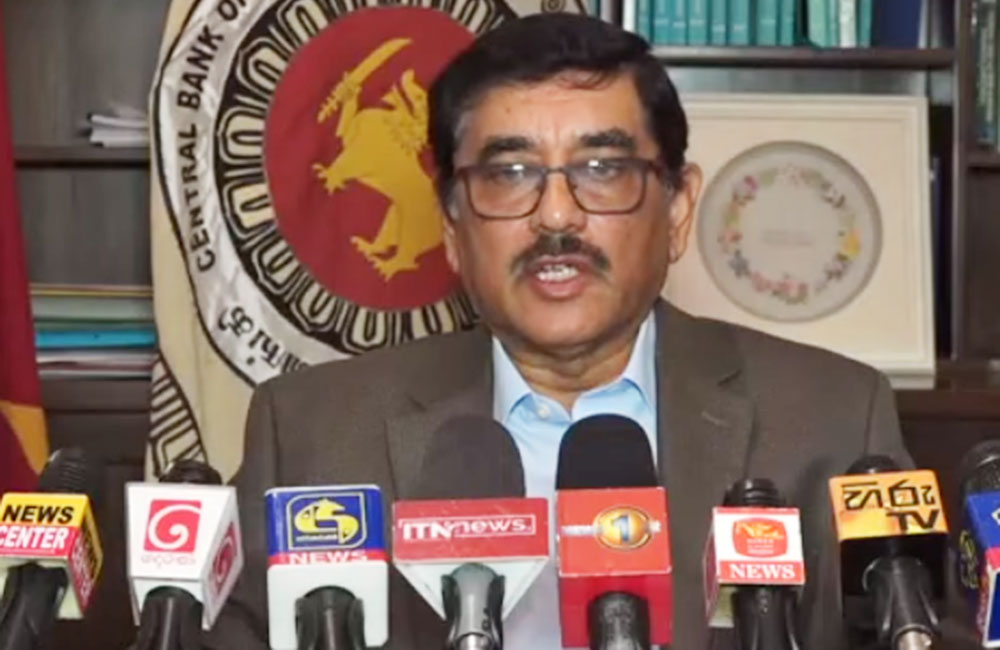
Why was the 30th of June declared a bank holiday?
Sri Lankan authorities have declared a five-day closure of financial markets from Thursday ahead of move to restructure the government's domestic debt amounting to more than $51 billion.
Central bank governor Nandalal Weerasinghe said authorities had ordered that Friday will be a holiday, on top of existing religious holidays on Thursday and Monday and the weekend.
He told local television networks that it would be unhealthy for markets to remain open while the debt restructuring was being discussed in parliament.
Weerasinghe said deposits of individuals would not be affected, but the government plan is to restructure treasury bills and bonds held by commercial banks and pension funds.
The government is still in talks with its foreign creditors to restructure external debt, a key condition to continue with the four-year $2.9 billion IMF rescue package.
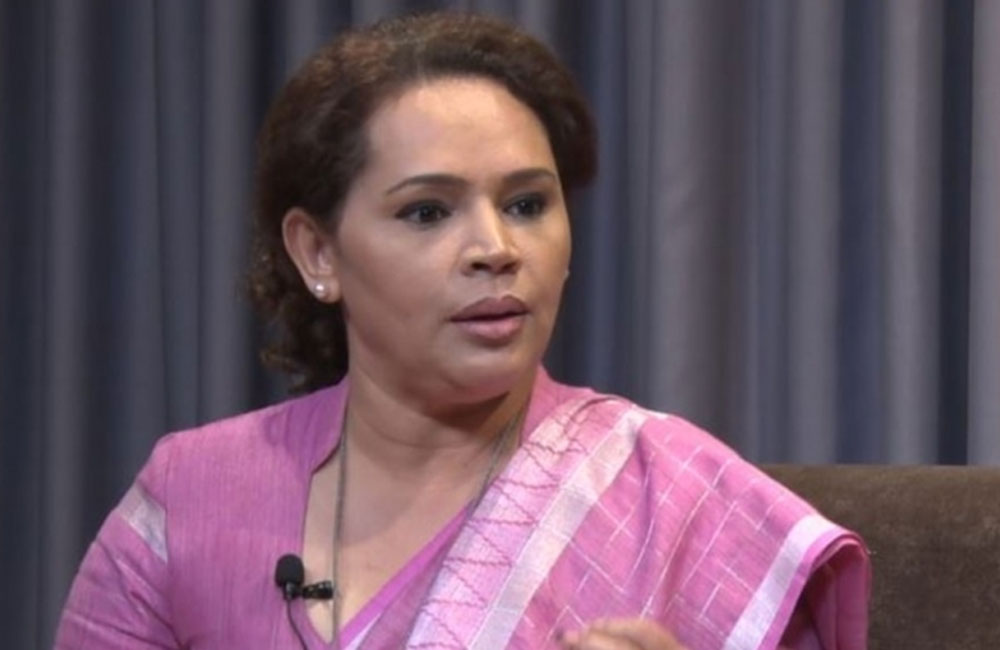
Double trouble for Diana : Complaint from Magistrate
The Colombo Chief Magistrate today reported State Minister of Tourism Diana Gamage to the court of appeal for the offence of contempt of court.
The magistrate in an order delivered today said that Gamage’s statement to a local TV station claiming that an order of the magistrate was leaked before it was delivered was a deliberate act of contempt.
This was after Counsel Hafeel Farisz made submissions regarding the statement by Gamage alleging that his client Oshala Herath published the order before it was delivered.
On April 24 the Magistrate made an order saying that there was sufficient evidence for the Criminal Investigations Department to arrest Gamage for violating the Immigrants and Emigrants Act.
Farisz said Gamage’s statement was made to influence the court of appeal which was due to deliver judgement in a matter regarding her Parliamentary seat on June 6.
An Officer in Charge of the CID S. Senarathne told the court that his investigation revealed that the order of the magistrate was not leaked to the media.
Magistrate Prasanna Alwis said that the statement was a blatant act of contempt and only the court of appeal could impose the punishment her statement deserves.
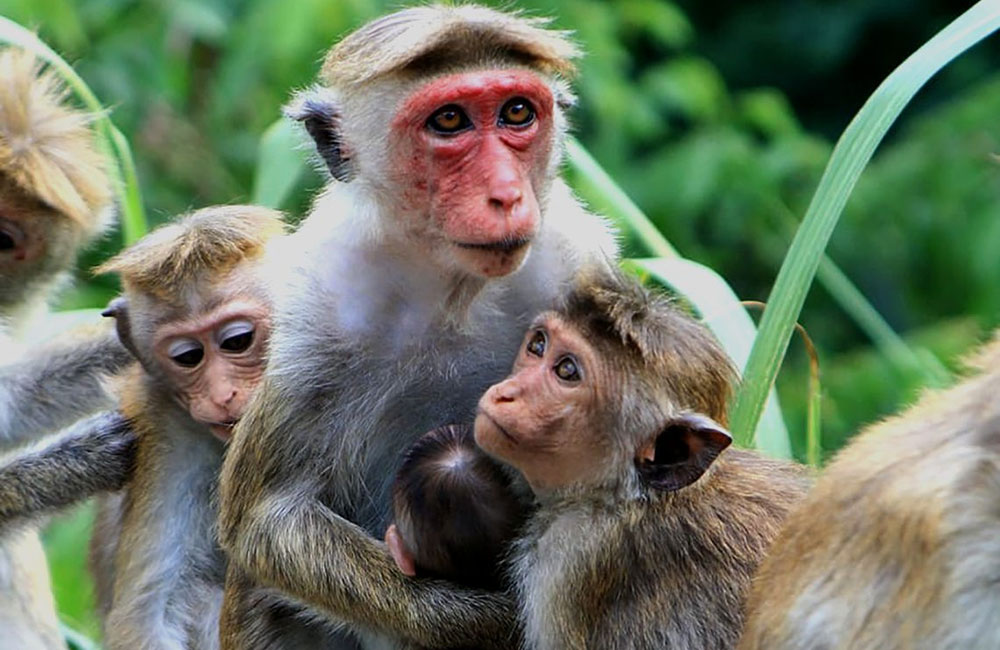
Wildlife Dept. gives undertaking not to export monkeys to China
The Court of Appeal was today given an assurance by the Department of Wildlife and Conservation that they will not be taking steps to export toque macaque monkeys from Sri Lanka to China.
The assurance given by the Department of Wildlife and Conservation was informed to the Court of Appeal by the Attorney General when the petitions filed against the move were taken up for hearing today.
The case will be taken up before the Court of Appeal next on 6th July 2023 to record the undertaking given to the Court by the State.
Nearly 30 petitions were filed in response to a previous statement made by Minister of Agriculture Mahinda Amaraweera claiming that there were plans being made to export toque macaque monkeys from Sri Lanka to China.
The petitioners were filed by several animal activists and environmentalists, including the Wildlife and Nature Protection Society of Sri Lanka, before the Court of Appeal seeking a Writ of Certiorari, quashing any decision to export toque macaque monkeys to China.
President’s Counsel Sanjeeva Jayawardena with counsels Prashanthi Mahindaratne, Dilumi De Alwis, Lakmini Warusevitane and Rukshan Senadira instructed by attorney-at- law Amila Kumar appeared for the Petitioners.
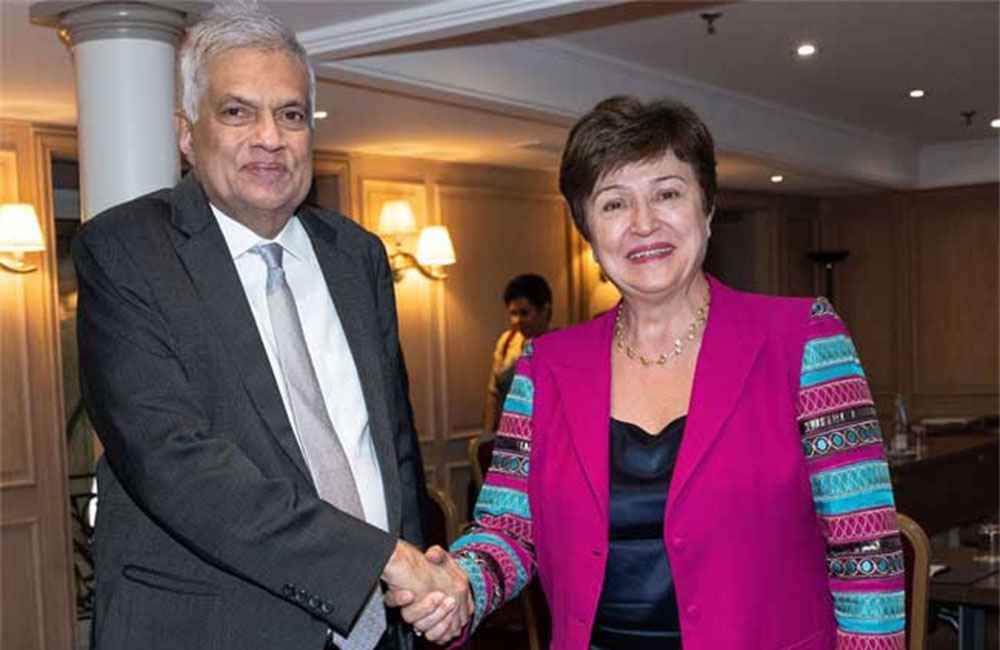
IMF Chief praises Strong ownership of SL govt to address economic challenges
President Ranil Wickremesinghe has held discussions with the Managing Director of the International Monetary Fund (IMF) Kristalina Georgieva on the sidelines of the “Summit for a New Global Financial Pact” held in Paris, France.
Commenting on the meeting, Kristalina Georgieva welcomed the strong ownership by the Sri Lankan government to address the current economic challenges.
Taking to Twitter, she further stated that the IMF is committed to supporting Sri Lanka’s economic reforms to improve living standards for its people.
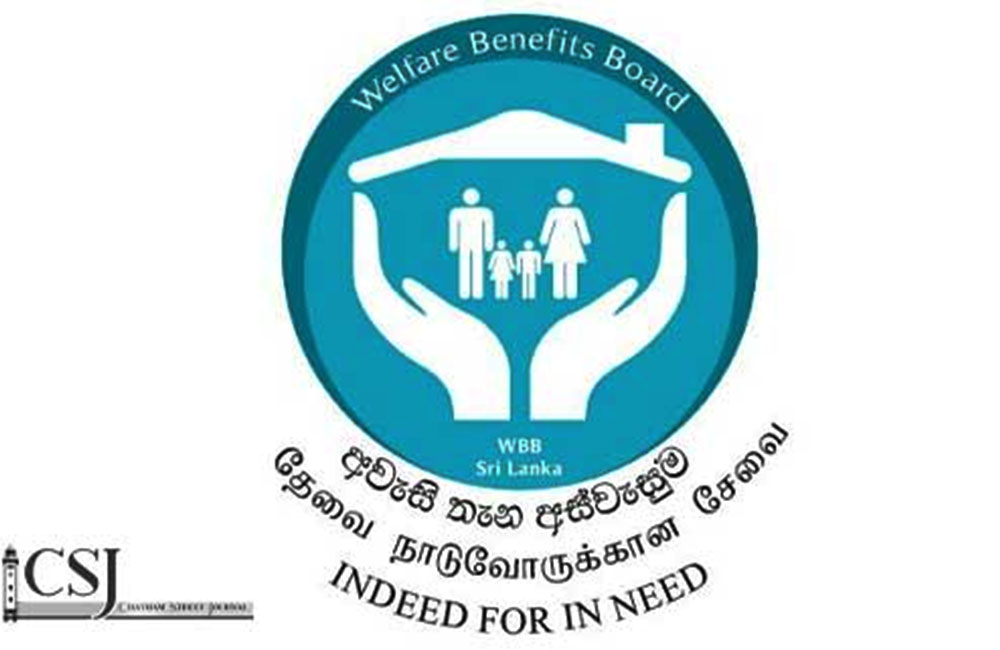
Govt. committed to preventing any injustice towards ‘Aswesuma’ beneficiaries - PMD
The government is committed to preventing any injustice towards the “Aswesuma” welfare beneficiaries, the President’s Media Division (PMD) said.
Meanwhile, the PMD further stated that the government urges all applicants to reach out to the Divisional Secretaries during the appeal period until July 10, since it emphasizes the importance of not yielding to political instigation or external influences.
Earlier today, State Minister of Finance Shehan Semasinghe stated that the Welfare Benefit Board would intervene if any injustice is observed in the beneficiary selection process.
Taking into Twitter, he also notified that the relevant officials have been informed so that the people can hand over appeals and objections under the ‘Aswasuma’ welfare benefits program personally at the Divisional Secretariats across the island.
For any further inquiries, the general public can contact the hotline number 1924 which is operational on weekdays from 8.00 a.m. to 5.00 p.m., according to the minister.

Pastor Jerome withdraws FR petition against arrest
The lawyers representing controversial Sri Lankan Pastor Jerome Fernando today withdrew the writ petition filed seeking an order to prevent his arrest by the Criminal Investigations Department (CID).
Pastor Jerome Fernando is wanted by the Sri Lanka Police after allegedly having made derogatory statements related to Lord Buddha, Islam, and Hinduism in front of a packed congregation.
Video footage of his remarks had caused an uproar among the followers of Buddhism in the country. Following the uproar, Pastor Jerome Fernando issued an apology regarding his controversial statement.
The Criminal Investigations Department (CID) obtained a travel ban against Pastor Jerome Fernando from the Fort Magistrate’s Court on May 15, but it was revealed that the pastor had left the country the previous day.
Pastor Jerome Fernando, thereafter, filed a Fundamental Rights (FR) petition requesting the court to issue an order preventing his arrest by the CID.
Last week, the Court of Appeal was informed by the Attorney General that an investigation has been launched against Pastor Jerome Fernando under the Prevention of Money Laundering Act.
Page 239 of 658